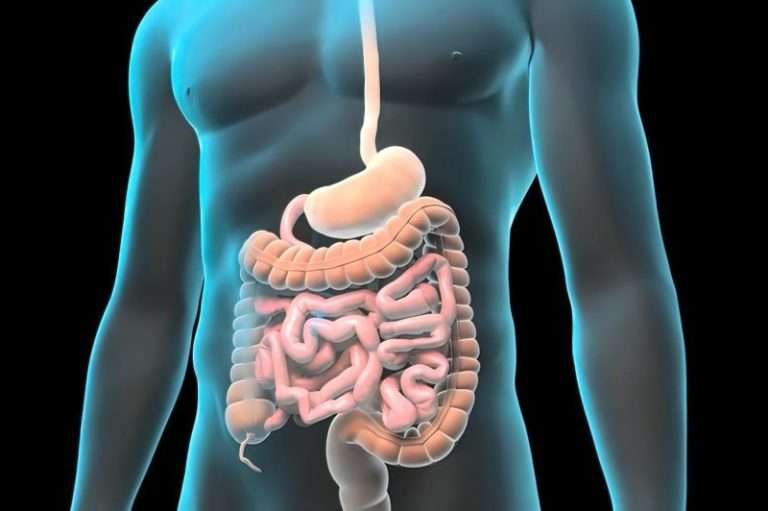Did you know that 90% of our immune system lives inside our digestive tract? An elimination diet for gut health can improve our immune system, and allow for better nutrient absorption and overall better health.
There are many foods that cause inflammation in the body and cause an imbalance in gut flora, including gluten, dairy, sugar, alcohol, caffeine, artificial sweeteners, and processed food. These foods will make us feel sluggish, depressed, tired, bloated, and inflamed.
But there are also foods that help promote healthy digestion and balance the microbiome. In this article, we list 15 foods to avoid for better gut health.
Table of Contents
1. Sugar
Sugar is one of the biggest culprits when it comes to poor gut health. Too much sugar can cause bloating, gas, diarrhea, constipation, and other digestive issues.
Sugar is everywhere. From breakfast cereals to soda pop, it seems like every day we hear about another study linking sugar consumption to obesity, diabetes, heart disease, cancer, and other diseases.
But while sugar is bad for our bodies, it’s even worse for our guts. Sugar feeds bacteria in our intestines, causing bloating, gas, constipation, diarrhea, and other digestive problems. And since sugar is addictive, it can lead to overeating and weight gain over time.
So what foods contain sugar? Here’s a quick rundown of the worst offenders:
- Soda Pop
- Breakfast Cereal
- Candy Bars
- Cookies
- Ice Cream
- Fruit Juice
- Granola Bars
- Pastries
- Snack Foods
- Sweetened Drinks
- Yogurt
- Rice Krispie Treats
2. Processed Foods
Processed food is loaded with preservatives, additives, artificial sweeteners, and trans fats. All these things can wreak havoc on your gut microbiome.
Processed food is usually loaded with preservatives, additives, and other ingredients that aren’t healthy for our bodies. These types of foods can lead to inflammation, leaky gut syndrome, and poor digestion.
To support a healthy digestive system, try avoiding processed foods altogether. Instead, focus on eating whole foods like fruits, vegetables, nuts, seeds, beans, and grains. When possible, choose organic versions of these foods.
3. Alcohol
Alcohol has been shown to disrupt the balance of beneficial gut microbes. Alcohol affects the digestive system in various ways. In general, drinking too much alcohol can damage the lining of the stomach, causing ulcers. Drinking alcohol can also increase the amount of acid in the stomach, which can harm the gut flora. Finally, drinking alcohol can decrease the production of bile, which is needed to digest fats.
4. Refined Carbohydrates
Refined carbohydrates include white bread, pasta, rice, potatoes, and sugary cereals. These refined carbs lack fiber and nutrients and contribute to inflammation and bad gut bacteria.
5. Dairy Products
Dairy products contain hormones and antibiotics that can negatively affect gut flora. Milk contains lactose, which feeds harmful bacteria.
6. Meat
Meat contains saturated fats, which can clog arteries and promote inflammation. Opt instead for low-fat meat sources like chicken, turkey, fish, beans, lentils, tofu, and eggs.
7. Grains
Grains are another common source of inflammatory omega-6 fatty acids. This leads to the leaky gut syndrome, which allows toxins and undigested food particles to enter the bloodstream.
8. Artificial Sweeteners
Artificial sweeteners are often made using chemicals that can alter the composition of the gut microbiome.
9. Trans Fats
Trans fats are found in processed foods, fried foods, fast foods, and packaged snacks. They can cause inflammation and block the absorption of vital nutrients.
10. Gluten
Gluten is a protein found in wheat, barley, rye, and oats. People with celiac disease cannot tolerate gluten. However, those without celiac disease can still suffer from its negative effects.
When consumed regularly, gluten can damage the lining of the intestines, causing inflammation and irritation. Symptoms include bloating, diarrhea, constipation, stomach pain, nausea, vomiting, weight gain, and fatigue. Gluten alters the composition of the gut microbiome making it less effective in breaking down foods.
11. Corn
Corn is a grain that is commonly used in processed foods. It is rich in fructose, which causes metabolic problems and promotes belly bloat.
12. Farmed Fish
Farmed fish have high levels of mercury and other contaminants like ammonia, nitrates, and phosphates. Instead, choose wild-caught seafood or organically farmed varieties.
The human digestive system breaks down food into nutrients that our cells can absorb. Ammonia and nitrates interfere with the health of gut microbes which affects the digestion and absorption of nutrients. Phosphates can build up in the intestines and contribute to constipation.
13. Caffeine
Coffee and tea are both diuretics (substances that make urine more watery). Consuming caffeine makes people more likely to get dehydrated.
14. Fried Foods
Deep frying foods increases their fat content and decreases nutrient density. Most foods are fried with trans fats and are not beneficial for the gut microbiome. Instead, bake, broil, grill, steam, poach or use healthy oils to prepare them.
15. Tap Water
Tap water is full of chemicals that can damage our gut microbiome over time.
Tap water contains chlorine, fluoride, and other chemicals that may be harmful to your health. The average American consumes over 100 gallons of tap water each month. This is enough to fill a swimming pool every day.
The best solution is to drink filtered water instead. Filters remove chlorine, fluoride, lead, mercury, arsenic, bacteria, viruses, pesticides, herbicides, heavy metals, pharmaceuticals, and many other toxins.
Another option is to purchase a reverse osmosis system. These systems remove 99% of contaminants from tap water, making it safe to drink.
In conclusion, if you’re looking to improve your gut health, you should consider an elimination diet for gut health by avoiding foods like gluten, dairy, sugar, refined carbs, and alcohol. These foods have been linked to inflammation and digestive issues, which can lead to bloating, gas, constipation, and even skin problems. But if you’re willing to give them up, you may find that you feel much healthier than you did before.

